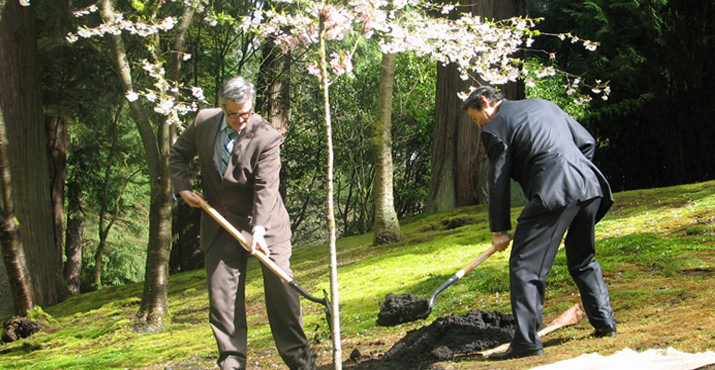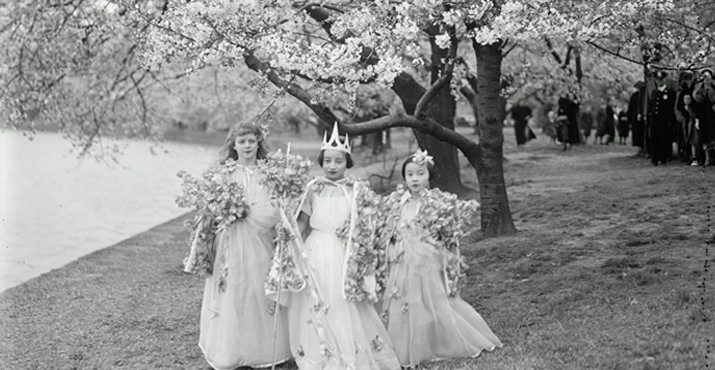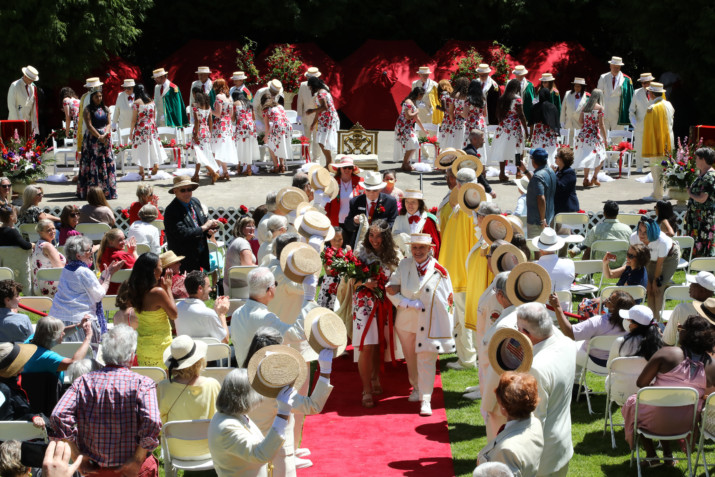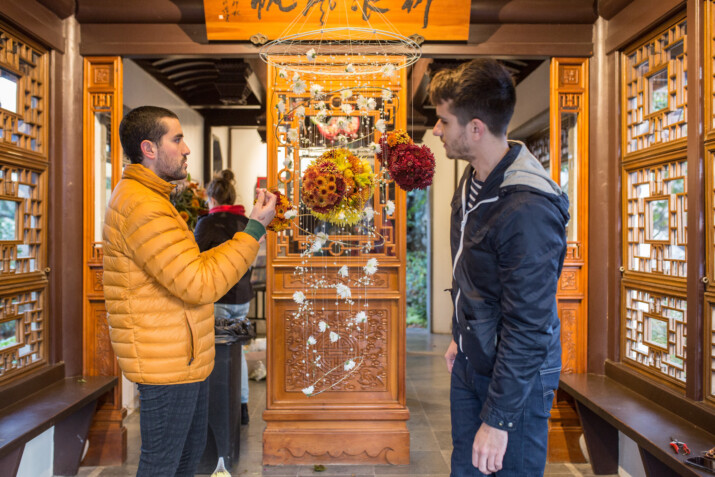Portland, April 12th. The spring tradition of planting of cherry trees originated in 1912 as a gift of friendship from the people of Japan to the people of the United States. Those trees were planted around the Washington, D.C. Tidal Basin, but this week the tradition was carried out in cities around the country. In Portland, Mayor Sam Adams and Consulate-General of Japan in Portland, Takamichi Okabe, planted a tree in the Japanese Garden in front of the garden’s Heavenly Falls.

Portland Mayor Sam Adams and Consulate-General of Japan in Portland, Takamichi Okabe, participate in commemorative cherry tree planting

Takamichi Okabe, Consulate-General of Japan in Portland, deliver remarks during the cherry tree planting ceremony at the Portland Japanese Garden as part of the nationwide centennial celebration of the National Cherry Blossom Festival
In Japan, the flowering cherry tree, or “Sakura,” is an exalted flowering plant. The beauty of the cherry blossom is a potent symbol equated with the evanescence of human life and epitomizes the transformation of Japanese culture throughout the ages.

Photographers shooting cherry blossoms along the Tidal Basin in Washington, D.C. on April 4, 1922. National Photo Company via Library of Congress
Cherry trees are blooming in Portland’s Japanese Garden.
Here’s more information about the garden:
The 5.5 acre Japanese Garden is composed of five distinct garden styles. When we enter a Japanese garden, the desired effect is to realize a sense of peace, harmony, and tranquility and to experience the feeling of being a part of nature. In a deep sense, the Japanese garden is a living reflection of the long history and traditional culture of Japan. Influenced by Shinto, Buddhist, and Taoist philosophies, there is always “something more” in these compositions of stone, water, and plants than meets the eye.

















